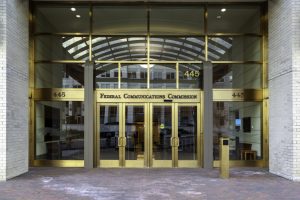The rules surrounding the United States’ internet infrastructure are causing a self-inflicted wound. Slow and complicated permitting processes for subsea cables are allowing China to forge ahead in the high-stakes contest for global digital infrastructure dominance.
Subsea cables carry over 99 percent of global internet traffic, making them the backbone of communications networks around the world. While Beijing’s mercantilist policies support Chinese firms, American companies have been hamstrung by overly complex and burdensome permitting requirements that delay deployment. Now, as private firms stand ready to invest their own capital, Washington is finally catching onto the fact that permitting reform is necessary for the U.S. to remain competitive with China.
In response, the Federal Communications Commission (FCC) recently adopted rules that advance efforts to speed up submarine cable deployment while ensuring security and resiliency of this critical communications infrastructure. The new rules update and clarify the requirements for approval, making the application process easier to navigate. Today, even finding out what information the FCC wants from applicants is difficult, making the application process tedious and time consuming. The new rules improve the application process by codifying the specific information required from applicants, including cyber and physical security risk management certifications. It also clarifies what changes to existing cable systems will require companies to notify the FCC, hopefully streamlining the application process by removing onerous reporting requirements, while maintaining information on national security threats.
But the biggest holdups in submarine cable deployment don’t typically happen at the FCC itself; they occur during reviews conducted by the interagency group known as “Team Telecom,” a group of representatives from the departments of Justice, Defense, and Homeland Security. Currently, Team Telecom reviews select FCC applications that are flagged as national security risks, but the additional review often adds months, even years, to deployment timelines.
With these new rules, the FCC is seeking public comment on a list of conditions that will exempt applications from being referred to Team Telecom for further review, keeping more applications in-house at FCC and speeding up the review process. Codifying these exemptions would ensure that the benefits of speeding up deployment are realized.
Faster deployment of more submarine cables isn’t just a matter of government efficiency. It’s the United States’ best means of improving the security of global dataflows and unleashing its advantages in competition with China. Permitting reform for submarine cable licenses is critical because it will increase the number and reach of U.S.-owned undersea internet cables. Expanding the U.S. submarine cable network will better connect the country, both digitally and diplomatically, ensuring cooperation and coordination on digital infrastructure standards and development at a time when China is seeking to be the dominant player.
Having more cables deployed makes global communications networks more resilient. Given almost all global data traffic moves through submarine cable networks, protecting this infrastructure is essential for the functionality of worldwide communications networks. Several high-profile cable cuts over the last year highlight the importance of mitigating harms that come from cable damage. Redundancy, created by new cable deployments, is essential. With multiple cable routes available, damage to any one cable will not be as detrimental to global internet traffic.
As submarine cables become part of the geopolitical battlefield, the United States needs an enhanced security strategy now more than ever. There were five cable cutting incidents around Taiwan in 2024 and 2025 that involved Chinese ships. Direct attribution of malicious behavior regarding these incidents is difficult, but concerns of sabotage by China are growing, especially following reports of a newly-developed Chinese ship able to cut cables at previously unreachable depths. The expansion of the U.S. subsea cable network will bolster global communications infrastructure against threats from China.
The United States cannot allow permitting inefficiencies to undermine its competitiveness in the global communications ecosystem. In the race for digital infrastructure dominance, regulatory efficiency is both an economic necessity and a strategic imperative.































